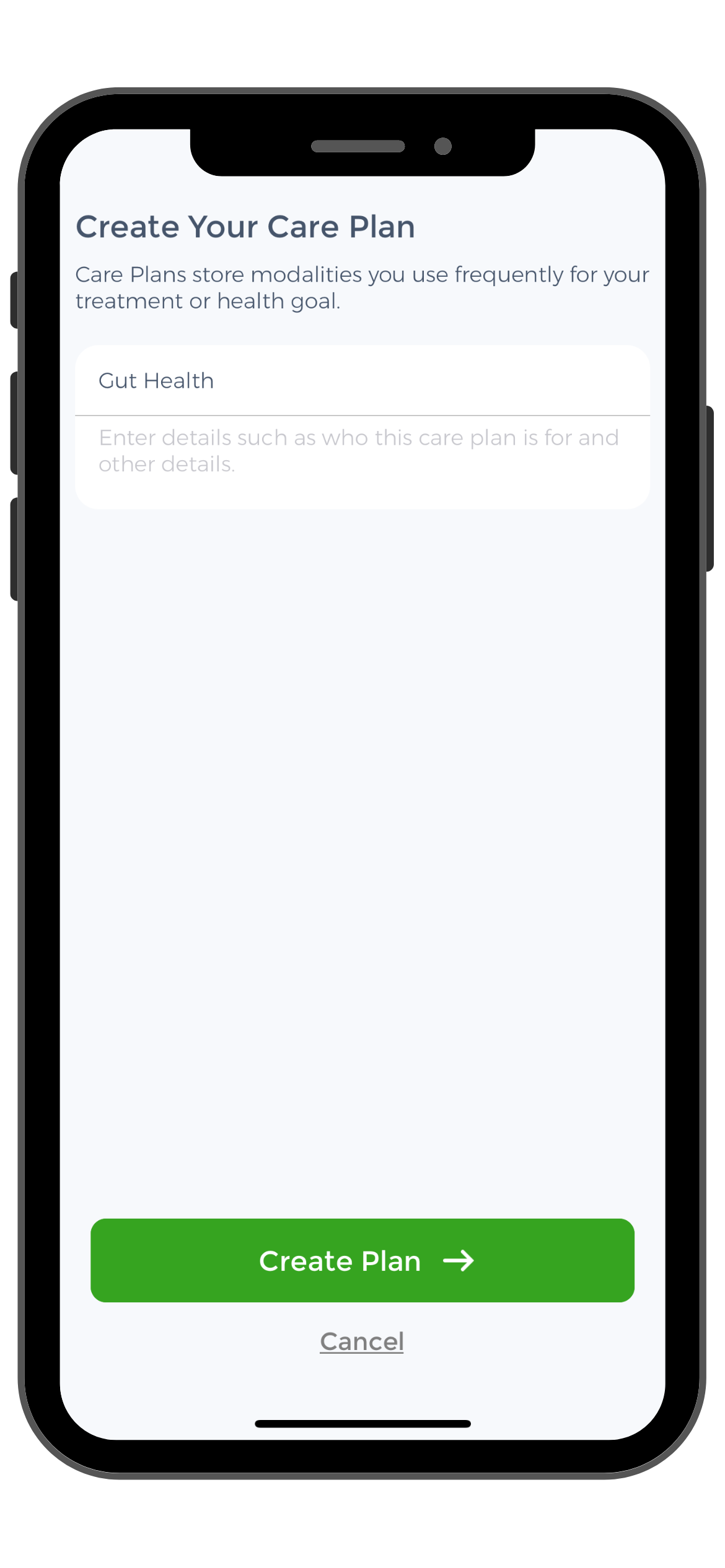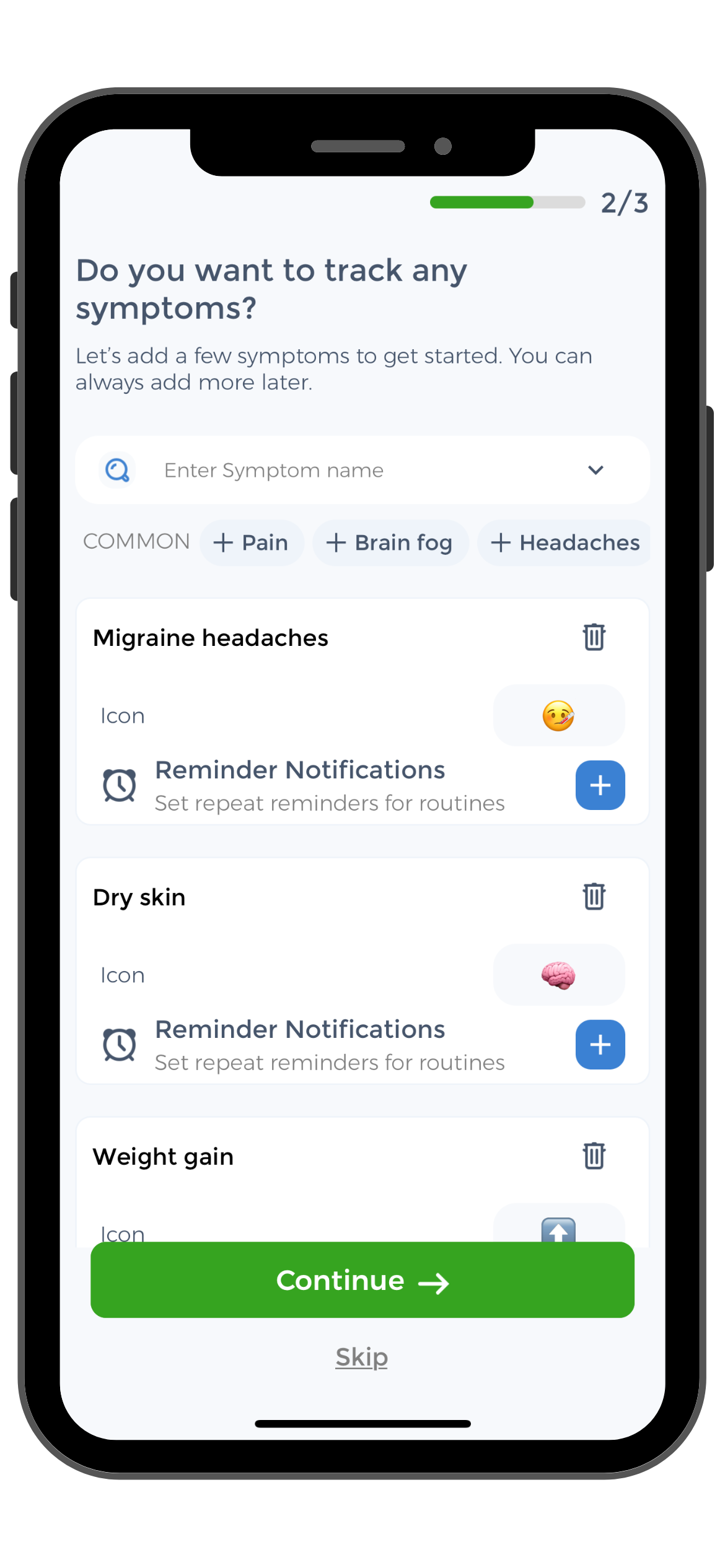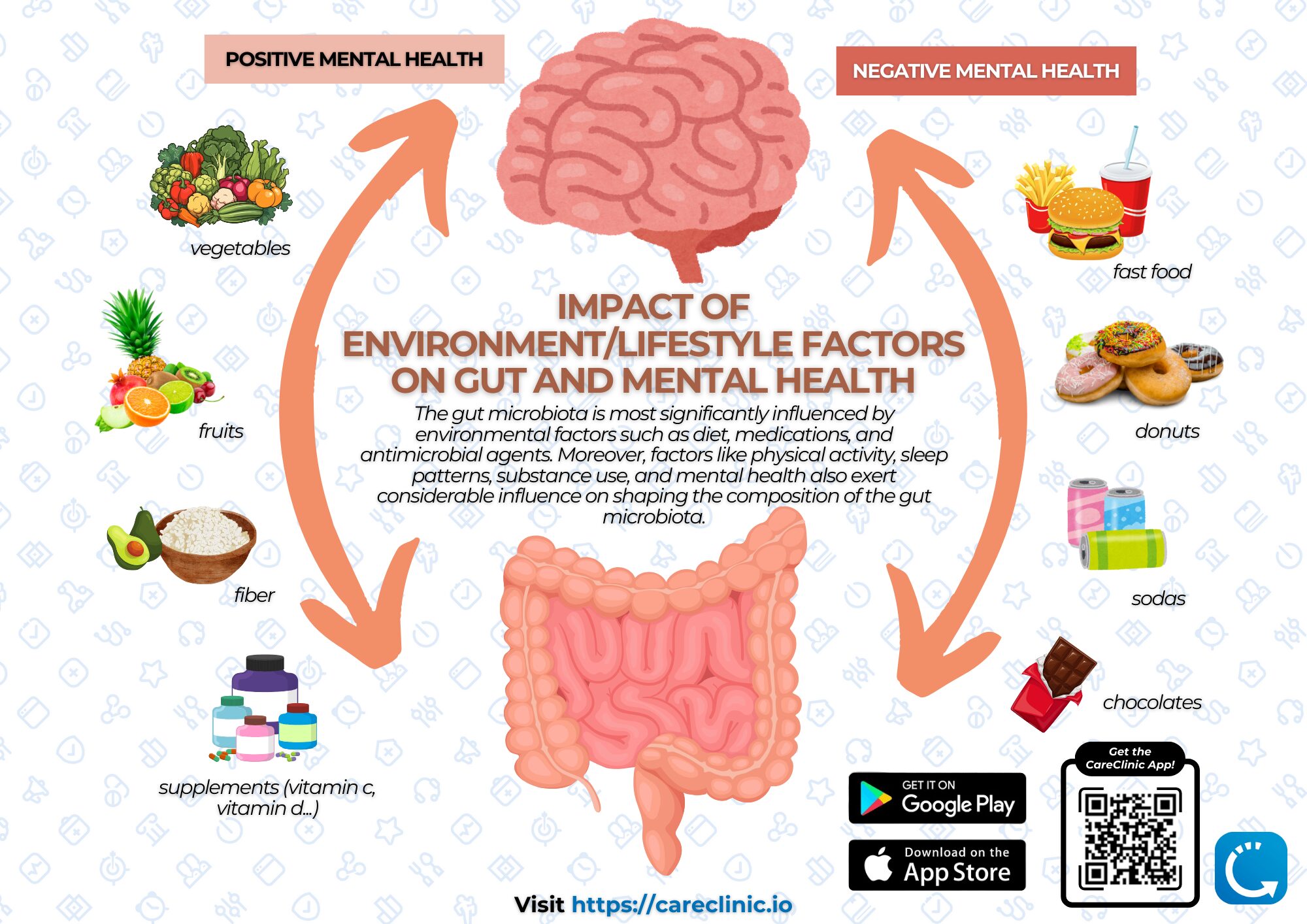![]()
Gut health is the balance of microorganisms of many parts of the gastrointestinal tract. Various organs such as the esophagus, stomach and intestines work together to allow us to eat and digest food without discomfort. The gut microbiome is the home base for the bacteria in the digestive tract. It helps in the breakdown of food and turns nutrients into things the body can use. There is a healthy balance of bacteria in the gut, it is called equilibrium. Gut Health Tracker helps you to keep a track of your gut health.
Types of Guts
To begin, let us break down the different types of guts and how a gut health tracker can be of assistance.
 Brain-Gut is when the type of experience, whereby the mindset imbalances and challenges as their primary default symptom. our gut is often called your “second brain” because it is directly linked to your brain, connecting your enteric and central nervous system. The brain-gut connection is a two-way street. The more stress you feel, the more likely your gut health suffers. A key marker of an altered brain-gut axis is also slowed motility—constipation and bloating, gastroparesis—and a tendency to get IBS, nausea, or loose stools when overly stressed or anxious. This is because the vagus nerve—the brain nerve that connects the brain to the gut—controls gut motility and bowel movements.
Brain-Gut is when the type of experience, whereby the mindset imbalances and challenges as their primary default symptom. our gut is often called your “second brain” because it is directly linked to your brain, connecting your enteric and central nervous system. The brain-gut connection is a two-way street. The more stress you feel, the more likely your gut health suffers. A key marker of an altered brain-gut axis is also slowed motility—constipation and bloating, gastroparesis—and a tendency to get IBS, nausea, or loose stools when overly stressed or anxious. This is because the vagus nerve—the brain nerve that connects the brain to the gut—controls gut motility and bowel movements.
Likewise, the more stressed or unhealthy your gut, the more likely you are to experience mental health symptoms like anxiety, depression, eating disorders, headaches or migraines, ADD/ADHD, or mental sluggishness.
Digestive Gut represents the gut type with gut-related symptoms like constipation, bloating, loose or hard stools, nausea etc. Immune Gut is when imbalances like skin breakouts, autoimmune conditions, allergies, asthma characterize the Immune Gut type. It also includes multiple food intolerances, environmental sensitivities and reactions, and frequent illness.
Toxic Gut, on the other hand, is when a person with a Toxic Gut typically has a history of autoimmunity or some immune trigger like a gut infection, mould exposure, or Lyme disease. They have often exhausted supplements, lab testing, medication options, and multiple therapies. It varies from acupuncture to chiropractic, all in efforts to feel better, with little to no resolution. Hormonal & Metabolic Gut is when a person with “Hormone and Metabolic Gut type” may also have digestive dysfunction, like SIBO, candida, or leaky gut, but their primary symptoms are related to their hormones—endometriosis, PCOS, PMS, irregular cycles, insomnia, or a thyroid condition. Since gut health is also tied to metabolic health, people with this gut type may have all sorts of metabolic imbalances, like unwanted weight gain, fatigue, and blood sugar issues.
Common Signs of an Unhealthy Gut
Stomach Discomfort
If the stomach is frequently upset by symptoms such as gas, bloating, diarrhea, constipation, and abdominal pain, these can be signs of irritable bowel syndrome (IBS), a common condition that affects the large intestines. Any imbalances in the gut bacteria, called dysbiosis, can play a role in the development of IBS in some cases.
Fatigue
People with chronic fatigue syndrome may have imbalances in the gut microbiome, which consists of the bacteria, microorganisms, fungi, and viruses present in the gastrointestinal tract.
Food Cravings
Consumption of too much sugar or starch can lead to an abundance of “bad” bacteria in the gut and dysbiosis.
Unintentional Weight Changes
Research has found differences in the gut microbiomes of lean and obese people. A western-style diet contributing to high in fat and refined carbohydrates may promote intestinal bacteria that are linked to obesity.
Skin Irritation
Research has also shown a link between an unhealthy gut and skin problems such as acne, psoriasis, and eczema. The gut microbiome influences the skin through complex immune mechanisms and that probiotics and prebiotics may help balance the gut and thus prevent or treat these inflammatory skin issues.
Allergies
An unhealthy gut can play a complex role in allergic conditions including respiratory allergies, food allergies, and skin allergies. Thus, the gut microbiome may influence nutrition, skin, and even the lungs.
Autoimmune Conditions
A particular gut bacteria, called Bacteroides fragilis, produces a protein that may trigger the onset of autoimmune conditions like rheumatoid arthritis, ulcerative colitis, and multiple sclerosis.
Mood Issues
There is a well-documented link between the gut and the brain, and the influence of the gut may also extend to your mood. A review published in September 2017 in the journal Clinics and Practice found that gut disturbances and inflammation in the central nervous system may be potential causes of anxiety and depression and that probiotics may help treat these conditions.
Migraines
A review published in February 2020 in The Journal of Headache and Pain found that while the link isn’t totally clear, the gut-brain connection may impact migraines as well. The review found that there is also a link between migraines and other conditions related to gut health, including IBS.
Sleep
Research has shown that people with tiredness often have abnormal levels of certain types of gut bacteria. An unhealthy gut can also negatively affect your natural circadian rhythm, which can disrupt sleep and leave you feeling overly tired during the day.
Free Gut Health Tracker Template
⬇️ Download Free Gut Health Tracker Template
Gut Health Impacts Your Whole Body
Gut Bacteria & Your Heart
Some kinds of gut bacteria may be part of the link cholesterol has to heart disease. When you eat foods like red meat or eggs, those bacteria make a chemical that your liver turns into something called TMAO (trimethylamine-N-oxide). TMAO may help cholesterol build up in your blood vessels. Researchers are studying a natural substance called DMB that’s in olive and grapeseed oil. They think it might keep your bacteria from making TMAO.
Gut Bacteria & Your Kidneys
Too much TMAO also may lead to chronic kidney disease. People who have the disease don’t get rid of TMAO as they should. That surplus can lead to heart disease. Researchers think it’s possible that too much TMAO might make you more likely to have chronic kidney disease in the first place.
Gut Bacteria & Your Brain
Your brain sends messages all over your body. Researchers believe your gut may talk back. Studies show that the balance of bacteria in the gut microbiome may affect your emotions and the way your brain processes information from your senses, like sights, sounds, flavours, or textures.
Scientists suspect that changes in that balance may play a role in conditions like autism spectrum disorder, anxiety, and depression, as well as chronic pain.
Gut Bacteria & Obesity
An unhealthy balance in your gut microbiome may cause crossed signals from your brain when it comes to feeling hungry or full. Researchers think there may be a link to the pituitary gland, which makes hormones that help set your appetite. That gland can affect the balance of bacteria in your gut, too. Some studies on treating obesity are exploring this link.
What Causes Gut Balance Issues?
 One of the biggest causes of gut imbalance is Poor diet. While good bacteria thrive on things like fibre and plant foods, bad bacteria and yeast love processed foods and sugar. And when your diet is full of processed foods and sugar, as many Western diets are, the well-fed bad bacteria start to overtake the good. Your diet is so important that it can cause undesirable changes in gut health even in a short period of time.
One of the biggest causes of gut imbalance is Poor diet. While good bacteria thrive on things like fibre and plant foods, bad bacteria and yeast love processed foods and sugar. And when your diet is full of processed foods and sugar, as many Western diets are, the well-fed bad bacteria start to overtake the good. Your diet is so important that it can cause undesirable changes in gut health even in a short period of time.
However, while diet is certainly important, it isn’t the only thing that matters. Other factors that can contribute to gut issues include:
- Stress
- Certain medications (e.g. frequent antibiotic use)
- Travel
- Food sensitivities
- Not enough sleep
- Alcohol intake
Ways to Keep the Gut Health on Track
Post-Meal Walks
Always consider going for a post-meal walk as walking helps the abdominal muscles contract. Walking helps the stomach move the acid. Then food into the intestines sooner thus decreasing the probability of reflux.
Keep a Track of Past Food Reactions
Make a note of any foods that cause an allergic reaction in the past. Re-exposure may cause a more significant reaction the second time around.
Drinking Enough Water
Water helps keep your digestive system well-lubricated and moving. Thus helping you to avoid constipation from dehydration and stress.
Abundance Fibre Intake
Without enough fibre in our diet, microbes start to gobble up the mucus barrier in the gut as an alternative food source. This alters the bacterial composition and metabolism in our gut. It then causes bacteria to trigger inflammation and make us feel sick. An ample amount of veggies and grain intake can help lower the odds that your stomach will go through.
Preferring Small Portions & Taking it Slow
Eating more than normal would tighten the muscle and makes us feel uncomfortable. Being mindful of how much to eat at a time can help to prevent bloating. Keeping an eye on the portions of the food we are consuming. Take enough time to actually chew the food properly instead of swallowing it whole. Stop eating when you start to feel any sort of fullness.
The Surprising Benefits of Dark Chocolate
High-cocoa dark chocolate may promote specific types of friendly gut bacteria. Dark chocolate helps to keep inflammation in check and our digestion regular.
How to Detox the Gut Naturally
As we know now there are a lot of things contributing towards gut imbalance. Likewise, we have a lot of things to support your gut health and bring your body back into balance:
Cleaning Up Your Diet
Diet is one of the most important factors contributing to gut health. The foods you eat have a direct effect on the balance of bacteria in your gut. Fibre and complex carbohydrates feed good bacteria, while sugar and processed foods encourage gut imbalance.
To keep your gut healthy, avoid sugar and processed foods. Always include plenty of high-fibre vegetables, healthy fats, and lean proteins in your diet. Focus on getting plenty of prebiotic foods, like asparagus, flaxseeds, artichoke, and jicama, too. Prebiotics help feed the good bacteria in your gut so that they can multiply, thrive, and predominate.
Probiotic Supplements & Fermented Foods
Probiotic supplements and fermented foods can help bring your gut microbiome back into balance. It directly supports your gut with good bacteria, especially when it is taken daily. Probiotics can also provide nutritional support for functional GI needs like occasional gas and bloating while encouraging regularity. Fermented foods also contain beneficial bacteria. Its also recommended talking to your physician before taking any new supplements. Especially if you’re dealing with health issues and are taking medications and other supplements.
Identify & Eliminate Specific Food “Triggers”
The key to good gut health is identifying and eliminating your food triggers to allow your gut to thrive.
While there are some foods, like refined sugars, that are known to contribute to gut imbalance in most people. It’s possible that you have specific food sensitivities and personalized nutrition needs when it comes to optimizing your gut health.
If you keep eating the food that you’re sensitive to, it can lead to immune reactivity. And finally contributes to gut imbalance.
The simplest way to identify individual food response differences is an elimination diet. In this, you eliminate common food triggers for 30 days and then slowly reintroduce them. Try looking out for how you feel along the journey. Several companies offer at-home testing kits that you can use to confirm which food(s) may be your personal triggers.
While the science behind these food sensitivity testing may not be perfect. If you are able to identify and eliminate food triggers for at least 30 days. It could help get your gut on the path to success.
Moving your Body Regularly
Getting regular exercise is also an important step in getting your gut into a balanced state. There are positive reviews on the effects of exercise on the gut microbiome. Aerobic exercise can increase the number of bacteria in your digestive tract and contribute to overall bacterial diversity.
While any movement can help, it appears that the more physically fit you are, the more diverse your microbiome is. Start small by exercising a couple of days a week. Then work your way up to including exercise as part of your regular, everyday routine.
Pay Attention to Stress Levels
Stress is inevitable, but too much can disrupt your entire system, and your gut is especially vulnerable. Too much stress can lead to immune reactions that contribute to gut imbalance.
And this effect is seen with any type of stress—physical, emotional, and environmental. While it’s impossible to get rid of stress completely, it’s important to get all types of stress levels under control. You have to find what works best for you, but some common stress reduction techniques include:
- Reducing your workload
- Making time for fun
- Yoga
- Meditation
- Journaling
- Exercise
- Getting enough good sleep
- Supplements and herbs
- Cleaning up your environment by using non-toxic personal care and cleaning products
- Breathing yoga
Consider Intermittent Fasting
Intermittent fasting, or going without food for a certain period of time, usually about 14 to 16 hours. It may help get your gut health back on track. “Giving your gut a break can support a normal inflammatory response, shed water weight, and reduce bloating.”
To add to that, regular intermittent fasting can also keep your gut healthy and working correctly as you age.
CareClinic As Your Gut Health Tracker
The CareClinic app helps you in different ways to keep a track of your gut health. Let’s take a look into various features it has to offer you for better maintaining your gut health.
Activity Tracking
![]() The CareClinic platform provides the feature to help you to remain active physically and mentally. It has a list of all activities you can choose from depending on what activity you performed. Accordingly, you can also input data on how much calorie is burned on that particular day.
The CareClinic platform provides the feature to help you to remain active physically and mentally. It has a list of all activities you can choose from depending on what activity you performed. Accordingly, you can also input data on how much calorie is burned on that particular day.
As we know how exercise plays a vital role in maintaining our gut health. CareClinic has an option to record your activity according to muscle groups. It keeps a record of which part of the body needs more attention. At the same time, it records where did you focus more in your past days. You may plan workouts accordingly for the future.
The app also allows you to set reminders for yourself so that you are ready to go when it’s time to work out. Setting reminders can help you build your routine which will help keep you motivated and keep your stress levels down. The app also allows you to set reminders for yourself so that you are ready to go when it’s time to work out. Setting reminders can help you build your routine which will help keep you motivated and keep your stress levels down.
Nutrition Tracking
For a healthy gut, proper diet and nutrition are essential. At the same time, it’s important to add more probiotics and fermented food to your diet. With this amazing feature, you can enter details of your nutrition intake such as how much quantity is consumed. You can keep a record of your calories, protein, fat, carbs intake. Track exactly what you are eating and when and the nutritional details of your meals. Then look back and see what your meal was and how it made you feel. Set up reminders for yourself so that you never miss a meal and are always properly nourished so that you can live a healthy lifestyle. Thus increase or decrease meals as per your health need.
So, what to wait for, download the CareClinic app today on iOS or Android and take advantage of the great features to keep your gut healthy.



